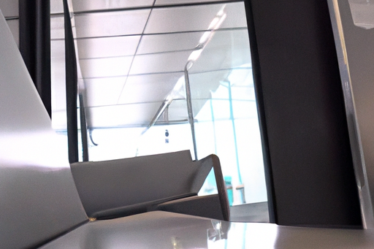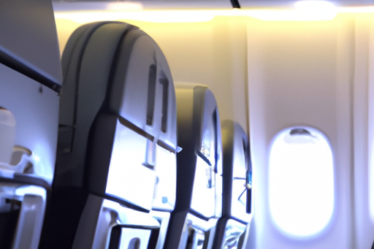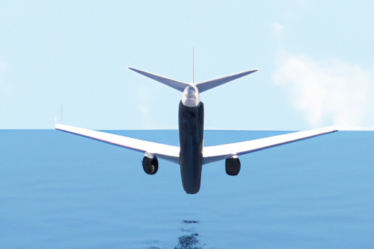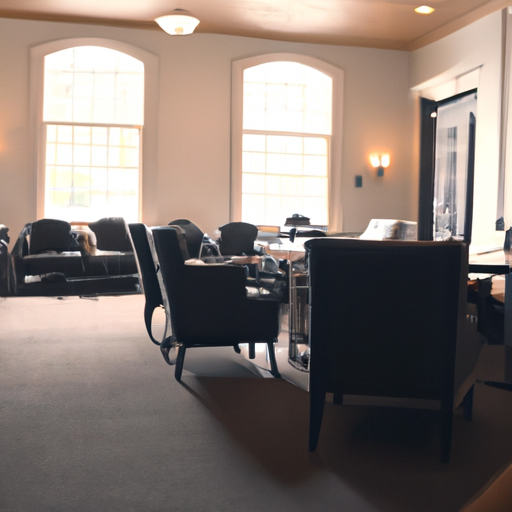
The Evolution of Northwest’s First Class Upgrades: A Historical Perspective
The Evolution of Northwest’s First Class Upgrades: A Historical Perspective
Northwest Airlines, once a major player in the airline industry, had a long and storied history of providing exceptional service to its customers. One aspect of their service that stood out was their first class upgrades. Over the years, these upgrades have undergone significant changes, reflecting the shifting landscape of the airline industry.
In the early days of Northwest, first class upgrades were a rare and exclusive privilege. Only a select few passengers were eligible for these upgrades, usually based on their frequent flyer status or their willingness to pay a hefty fee. These upgrades were seen as a luxury, reserved for the elite few who could afford them.
As time went on, however, Northwest realized the potential of offering first class upgrades to a wider range of passengers. They began to introduce new ways for customers to earn these upgrades, such as through their loyalty program or by purchasing a higher fare class. This opened up the possibility for more passengers to experience the comfort and luxury of first class.
In the 1990s, Northwest made a significant change to their first class upgrade policy. They introduced a system where passengers could bid for upgrades using a combination of cash and frequent flyer miles. This innovative approach allowed passengers to have more control over their upgrade experience, as they could decide how much they were willing to pay for the upgrade.
This new system was met with mixed reviews. Some passengers loved the flexibility it offered, while others felt that it devalued the exclusivity of first class. Despite the criticism, Northwest continued to refine and improve their upgrade system, taking into account the feedback from their customers.
In the early 2000s, Northwest faced increasing competition from low-cost carriers and had to adapt to the changing market. They realized that offering first class upgrades exclusively to their frequent flyers was no longer sustainable. They needed to find a way to attract new customers while still rewarding their loyal ones.
To achieve this, Northwest introduced a new upgrade system that allowed passengers to purchase upgrades at a discounted rate. This meant that even passengers who had never flown with Northwest before could enjoy the benefits of first class. This move was seen as a bold and innovative step, as it challenged the traditional notion of first class being reserved for the privileged few.
As the airline industry continued to evolve, Northwest faced new challenges and opportunities. In 2008, Northwest merged with Delta Air Lines, creating one of the largest airlines in the world. This merger brought about further changes to the first class upgrade system, as the two airlines worked to integrate their policies and procedures.
Today, first class upgrades on Northwest, now operating as Delta, are more accessible than ever before. Passengers can earn upgrades through their loyalty program, purchase them at a discounted rate, or bid for them using a combination of cash and miles. This evolution reflects the changing times and the need for airlines to adapt to the demands of their customers.
In conclusion, the first class upgrade system on Northwest Airlines has come a long way over the years. From being a rare and exclusive privilege to a more accessible and flexible option, the evolution of these upgrades reflects the changing landscape of the airline industry. Northwest, now operating as Delta, continues to innovate and adapt, ensuring that their customers can enjoy the comfort and luxury of first class.
The Impact of Technology on Northwest’s First Class Upgrades
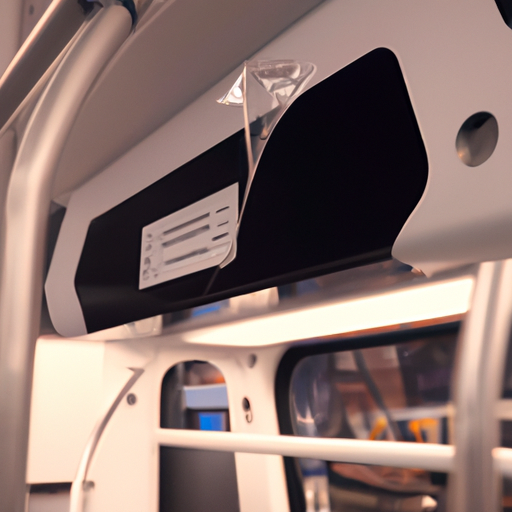
The Changing Times of Northwest’s First Class Upgrades
Northwest Airlines has long been known for its exceptional first class service. Passengers flying in first class were treated to spacious seats, gourmet meals, and personalized attention from the flight attendants. However, with the advent of technology, the way first class upgrades are handled has changed significantly.
In the past, passengers hoping for a first class upgrade would have to wait until they arrived at the airport to see if any seats were available. This often led to disappointment, as there were only a limited number of first class seats on each flight. However, with the rise of online booking and mobile apps, passengers can now request a first class upgrade before they even arrive at the airport.
The impact of technology on first class upgrades has been twofold. On one hand, it has made the process more convenient for passengers. They no longer have to wait until they are at the airport to find out if they will be flying in first class. Instead, they can simply log into their account or open the airline’s app and request an upgrade. This has made the process more efficient and has saved passengers time and frustration.
On the other hand, the increased availability of first class upgrades has made them less exclusive. In the past, first class was reserved for the elite few who could afford it or who had accumulated enough frequent flyer miles. Now, anyone with a credit card and a desire for a more luxurious flying experience can request an upgrade. This has led to a decrease in the overall quality of the first class experience, as more passengers are vying for the limited number of seats.
Another way technology has impacted first class upgrades is through the use of algorithms. Airlines now use complex algorithms to determine which passengers are eligible for an upgrade. These algorithms take into account factors such as frequent flyer status, ticket price, and even social media influence. This has led to a more fair and transparent process, as upgrades are no longer solely based on who arrived at the airport first or who had the most miles.
However, the use of algorithms has also led to some controversy. Passengers who have been loyal to an airline for years may find themselves passed over for an upgrade in favor of someone who has only recently started flying with the airline but has a higher social media following. This has led to accusations of favoritism and has caused some passengers to question the fairness of the upgrade process.
In conclusion, the impact of technology on Northwest’s first class upgrades has been significant. It has made the process more convenient for passengers, but it has also made first class less exclusive. The use of algorithms has made the process more fair, but it has also led to controversy. As technology continues to advance, it will be interesting to see how first class upgrades evolve and what changes will be made to ensure a positive and enjoyable flying experience for all passengers.
Adapting to Customer Preferences: Northwest’s First Class Upgrades in the Modern Era
The airline industry has undergone significant changes over the years, and one area that has seen a major transformation is the first class upgrade experience. Northwest Airlines, once a prominent player in the industry, has had to adapt to the evolving preferences of its customers in order to stay competitive in the modern era.
In the past, first class upgrades were a luxury reserved for the elite few. Passengers would often have to pay a hefty price or have a certain level of frequent flyer status to enjoy the perks of flying in the front of the plane. However, as the industry became more competitive and customer expectations shifted, airlines like Northwest had to find new ways to entice passengers to choose their first class cabins.
One of the ways Northwest adapted to these changing times was by introducing a system that allowed passengers to bid for first class upgrades. This innovative approach gave customers the opportunity to name their price for an upgrade, creating a more democratic and accessible process. This move was well-received by passengers, as it allowed them to have more control over their travel experience and enjoy the benefits of first class without breaking the bank.
Another change that Northwest made to its first class upgrade system was the introduction of a points-based program. This program rewarded loyal customers with points for their frequent flyer activity, which could then be redeemed for first class upgrades. This not only incentivized customers to choose Northwest for their travel needs but also fostered a sense of loyalty and appreciation among its frequent flyers.
In addition to these changes, Northwest also recognized the importance of personalization in the first class upgrade experience. They began offering tailored amenities and services to cater to the individual preferences of their passengers. From personalized welcome messages to customized meal options, Northwest went above and beyond to make each passenger feel special and valued.
As technology advanced, Northwest also embraced the digital age to enhance the first class upgrade process. They developed a user-friendly mobile app that allowed passengers to easily manage their upgrades, view available options, and make changes to their reservations. This streamlined approach not only made the process more convenient for passengers but also reduced the workload for airline staff, allowing them to focus on providing exceptional service.
Furthermore, Northwest recognized the importance of feedback from its customers in shaping the first class upgrade experience. They actively sought input through surveys and focus groups, using the feedback to make continuous improvements and ensure that their offerings aligned with customer preferences. This customer-centric approach helped Northwest stay ahead of the curve and maintain its reputation as a leader in the industry.
In conclusion, Northwest Airlines has successfully adapted to the changing times of first class upgrades by embracing customer preferences and leveraging technology. By introducing bidding systems, points-based programs, personalized amenities, and user-friendly apps, Northwest has created a more accessible, personalized, and convenient first class upgrade experience. Through their commitment to customer satisfaction and continuous improvement, Northwest has proven that they are willing to go the extra mile to meet the evolving needs of their passengers in the modern era.
